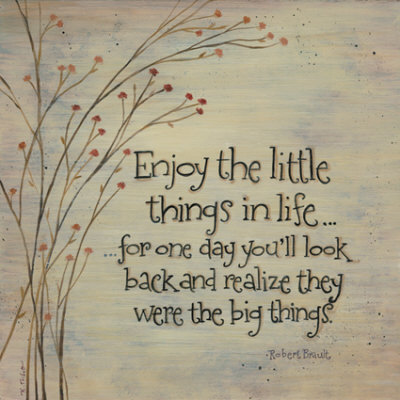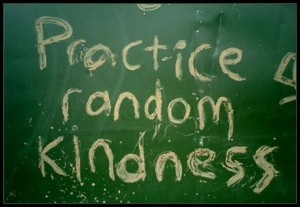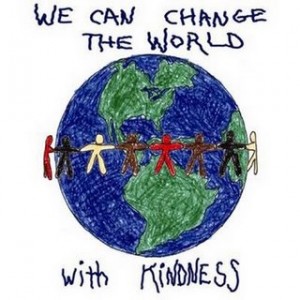1 Peter 2:2-10
A couple of weeks ago, I went on a rather convoluted trip covering six states in 60 hours. This is what I do: I’m a missionary who travels constantly to preach and teach and witness.
Halfway through my trip, I discovered that I somehow had managed to lose my Kindle.
Y’all know what a Kindle is, right? It’s the Amazon e-reader that literally changed my life as a missionary. It kept me sane and kept me company when I was alone, a stranger in a strange land.
I’m very partial to my Kindle. I have about 400 books on it, and it has traveled the world with me. Partway through my travels, I realized I had left my Kindle on the plane.
I tried valiantly to get it back, I really did: I called the airlines, I filed a report, I went to baggage claim (where I found someone else’s Kindle, but not mine), I called Amazon, I even posted a note on Facebook (you know, just in case) … to no avail.
But my Kindle didn’t show up. And didn’t show up …
So I ordered another one, and pretty much gave up on ever finding the one that was lost.
Imagine my surprise, then, when last Wednesday I received an email from a man saying that his son had found my Kindle on the plane and had tried but failed to connect with me on Facebook. That morning, the teen-ager asked his father: Can you find the owner? He did.
The father and I had a marvelous conversation, not just about the Kindle but about our families and my service as a missionary and what I do and what he does, and where I’ve been and where he wants to go. In the end, I sold the once-lost-now-found Kindle to him for a severe discount, telling him that the balance of its worth was my gift to them, because they not only found my Kindle, they took the time and made the effort to track me down.
Then, because I’m a social creature, I shared my good news on Facebook.
The responses were astounding! People from all over the country commented, all seeing such good news in this story. This is wonderful, they said. You all are blessed! they gushed. This is a soul-to-soul connection, they wrote. This is not a co-incidence, one opined, but a “God-incident.”
Now … I know this story really only affects a few of us, and in the grand scheme of life it means very little. But for those of us involved, it is an important story. Because out of my carelessness, a new connection, a “soul-to-soul” connection has been established.
One little thing has brought us together – a family in Cincinnati and me, a missionary who gallivants all over the country on a weekly basis.
This, my friends, is what the Apostle Peter is talking about in his Epistle this morning … he’s talking about the little things of life, the little things we do not because we have to do them, but because we belong to God.
When Peter writes that we are “a chosen race, a royal priesthood, a holy tribe (that’s a better translation from the Greek than
“nation,”) God’s own people,” he’s not talking about us saving the world single-handedly.
Peter is talking about us saving the world one little thing at a time.
Remember … Peter is writing this letter to people who thought Jesus was coming back any second now – only Jesus hadn’t come back yet. So Peter is instructing the people how they are to live until that moment happens.
Does this sound familiar?
Doesn’t this sound rather like what we just went through yesterday, with the alleged Rapture that Harold Camping and his followers told us was going to happen at 6 o’clock last night?
Now you and I can laugh and make jokes about Mr. Camping and his predictions.
But in Peter’s day, Jesus’ followers were just as confident as Mr. Camping’s followers that the Risen Lord was due back at any second.
And since the Risen Lord hadn’t come back yet, Jesus’ followers were a bit confused, and rather anxious, and a tad uncertain how they were to live their lives.
So the Apostle told them:
You are a holy tribe … you are God’s own people. Your job, your mission, is to live your lives in holiness.
In every little thing.
We live holy lives when we love one another as God loves us. Every word we say – or don’t say … every gesture we make — or don’t make … everything in our lives is to reflect God’s wild, radical, inexplicable, eternal love for us.
I know this sounds rather simplistic. But the truth is, those little things we think aren’t all that important? The ones we may be tempted to think don’t really matter … especially in the greater scheme of life? They are important and they do matter.
Because those little things add up. Those little things are the mustard seeds that start out so very small and grow … and grow … and grow … into huge bushes. Trust me, you plant a mustard seed and it will grow so big so fast that you’ll be astonished. You think kudzu is bad? Try mustard. It’s one of the little things.
Face it, my friends: We live in a world that does not support us in our calling as God’s own people, a holy tribe. We live in a world that tells us we have to get ahead – and leave others behind. That tells us we have to spend, spend, spend, buy, buy, buy … so that we can die with the most toys. That whispers that it is OK to forget those in need … because those in need? They’re not us.
But we are God’s own people. We are God’s holy tribe. And we are not called to live our lives as society tells us. Because we are, as Father Michael said in his sermon a few weeks ago, homo eucharisticus, thankful people whose mission is to live lives of thanksgiving.
And we do that one little thing at a time …
We live lives of love because we are created in love. Remember: God did not need to create us. We are not necessary to God! God is necessary to us, but we are not necessary to God! We know this is true, because God was before we were, and God will be after we are, so we cannot possibly be necessary to God. Which means that God wants us, that God desires us, that God loves us into being.
And since that is how God created us – in love — that is how we are to live our lives: In love.
This is our calling.
This is our mission.
This is what it means to be a holy tribe. To be God’s own people. To be homo eucharisticus.
And it doesn’t matter what the world has to say about this, what society tries to teach us!
 Every moment of our lives, because we are God’s own, we are called, in every little thing, to live in the same wild, radical, inexplicable, eternal love for others that God has for us.
Every moment of our lives, because we are God’s own, we are called, in every little thing, to live in the same wild, radical, inexplicable, eternal love for others that God has for us.
And we know what God’s incredible love looks like, don’t we? We know the way and the truth that lead us to life.
By caring for those in need. Mourning with those who are mourning. Rejoicing with those who are filled with joy. Feeding the hungry. Giving water to the thirsty. Making the blind see and the deaf hear and the mute sing and the lame leap for joy! By proclaiming the year of the Lord not once every fifty years, but every year!
We know how to do this and we can do this!
But … we can’t do this all at once! We can’t just wave our hands and cure the world of all its ills. Because we are not God!
But we are God’s holy people.
And as God’s holy people, we can cure the world one little thing at a time.
We can live our lives in love, every single moment of every single day in everything we do, big, little or anywhere in between.
We can take the time to greet the stranger … and let her know she is welcome. We can let that person who is in such a great hurry on I-65 pass us … without saying a bad word, without making a gesture we will regret. We can, as Robert Fulghum once famously wrote in his book, All I Really Need to Know I Learn in Kindergarten: Hold hands crossing the street. Help little old ladies. Share your cookies. (You think sharing your cookies is not important? Let me tell you, I’ve lived in countries where we didn’t have enough to eat, and anyone who shared a cookie with you let you know that you deserved to live!)
We can hold this child Timothy Alexander, who was baptized this morning, and tell him, over and over again, that God loves him. That we love him.
We do not have to save the world all by ourselves.
That is God’s job.
Our job, our mission, is to save the world one little thing at a time.
You know … like returning my Kindle … even when you don’t have to.
Mother Teresa of Calcutta echoed Peter’s words when she said, “God does not demand that I be successful. God demands that I be faithful. When facing God,” she said, “results are not important. Faithfulness is ….”
In every little thing.
Mother Teresa even gives us guidance on how we are to live our holy lives:
”The good you do today,” she said, “may be forgotten tomorrow. Do good anyway.
“Honesty and transparency make you vulnerable. Be honest and transparent anyway.
“What you spend years building may be destroyed overnight. Build anyway.
“People who really want help may attack you if you help them. Help them anyway.
“Give the world the best you have and you may get hurt. Give the world your best anyway.”
You want to live as God’s holy people? You want to show the world what it means to be homo eucharisticus, to be God’s holy tribe?
Do good.
Be honest.
Help those in need.
Give the world your best.
Every single day.
In every little thing.
And if I ever lose my Kindle again?
I’d appreciate it if you’d return it to me.
Amen.
Sermon for the 5th Sunday of Easter, 22 May 2011, Year A, at Christ Episcopal Church, Bowling Green, Kentucky.








